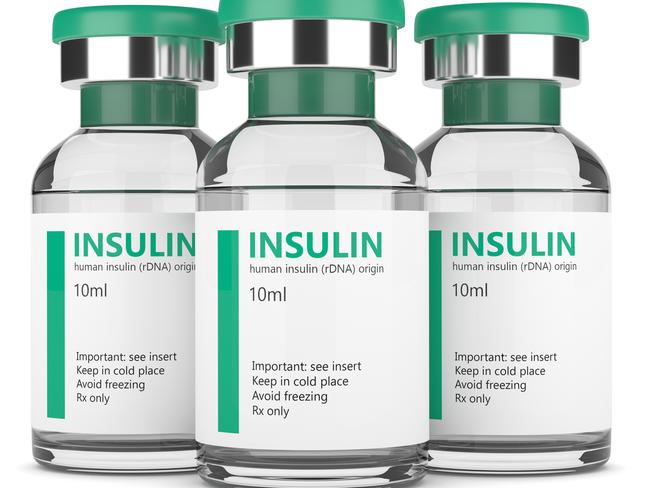Jabberwocky
Frumious Bandersnatch
ALEX Smith lived just 27 days after he aged out of his parents? health insurance cover.
The US man?s 26th birthday became a death sentence last year, as he could no longer afford to buy the insulin he needed to live and treat his diabetes, Minneapolis Star-Tribune reported.
An autopsy determined he died from diabetic ketoacidosis caused by a critical shortage of insulin, which he reportedly tried to ration because of the exorbitant cost per month.
His mother, Nicole Smith-Holt, said his next payday was only days after his death.
?It?s not affordable. You?re price-gouging people who need this one product to live, to survive,? she said.

He was diagnosed with type 1 diabetes when he was 23.
Smith?s insulin refills cost $US1300 ($A1770), something he couldn?t afford as a restaurant manager.
The most affordable health plan he could find had a deductible which still prevented him from affording his medication, so he went without, rationing his insulin each month.
She led a protest at the headquarters of Eli Lilly, a major insulin manufacturer, in St Paul, Minnesota, as well as a rally earlier this week at the Minnesota state capitol.
Between 2002 and 2013, the price of insulin per millilitre rose by 197 per cent, from $4.34 per millilitre to $12.92 per millilitre, according to a 2016 study.
Eli Lilly and Co told the Star-Tribune that even though the list price for the drug has gone up, the company is receiving less money from sales of the drug since 2009 because of rebates.
Unlike most countries, the US doesn?t limit what drug companies can charge for medicine.
President Donald Trump unveiled his plan on Friday to battle high prescription drug prices in the US, which includes speeding up the approval process for over-the-counter medications and a requirement for drug makers to disclose the cost of their products in TV ads.
The plan didn?t include his campaign promise to allow Medicare, the largest buyer of drugs, to negotiate with drug companies directly, the Associated Press reported.
However, in response to Smith?s death, a politician on the state level took action, naming a bill in his honour to provide emergency insulin for those in need.
The bill was referred to committee but will not get a vote in the current legislative session, the Star-Tribune said.
About 1.25 million Americans have type 1 diabetes, about 5 per cent of diabetics, the American Diabetes Association said. In Australia, around 130,000 have type 1 diabetes.
It is a lifelong auto-immune disease usually occurring in children and young adults.
Source: https://www.news.com.au/lifestyle/h...g/news-story/e49bf150bb336fdeecb0e903580ac528
The US man?s 26th birthday became a death sentence last year, as he could no longer afford to buy the insulin he needed to live and treat his diabetes, Minneapolis Star-Tribune reported.
An autopsy determined he died from diabetic ketoacidosis caused by a critical shortage of insulin, which he reportedly tried to ration because of the exorbitant cost per month.
His mother, Nicole Smith-Holt, said his next payday was only days after his death.
?It?s not affordable. You?re price-gouging people who need this one product to live, to survive,? she said.
He was diagnosed with type 1 diabetes when he was 23.
Smith?s insulin refills cost $US1300 ($A1770), something he couldn?t afford as a restaurant manager.
The most affordable health plan he could find had a deductible which still prevented him from affording his medication, so he went without, rationing his insulin each month.
She led a protest at the headquarters of Eli Lilly, a major insulin manufacturer, in St Paul, Minnesota, as well as a rally earlier this week at the Minnesota state capitol.
Between 2002 and 2013, the price of insulin per millilitre rose by 197 per cent, from $4.34 per millilitre to $12.92 per millilitre, according to a 2016 study.
Eli Lilly and Co told the Star-Tribune that even though the list price for the drug has gone up, the company is receiving less money from sales of the drug since 2009 because of rebates.
Unlike most countries, the US doesn?t limit what drug companies can charge for medicine.
President Donald Trump unveiled his plan on Friday to battle high prescription drug prices in the US, which includes speeding up the approval process for over-the-counter medications and a requirement for drug makers to disclose the cost of their products in TV ads.
The plan didn?t include his campaign promise to allow Medicare, the largest buyer of drugs, to negotiate with drug companies directly, the Associated Press reported.
However, in response to Smith?s death, a politician on the state level took action, naming a bill in his honour to provide emergency insulin for those in need.
The bill was referred to committee but will not get a vote in the current legislative session, the Star-Tribune said.
About 1.25 million Americans have type 1 diabetes, about 5 per cent of diabetics, the American Diabetes Association said. In Australia, around 130,000 have type 1 diabetes.
It is a lifelong auto-immune disease usually occurring in children and young adults.
Source: https://www.news.com.au/lifestyle/h...g/news-story/e49bf150bb336fdeecb0e903580ac528





